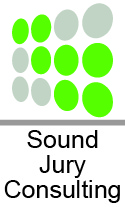Jury Lessons from the Great American Road Trip
Last week, I finished a three-week road trip with my family in which we drove over 3,000 miles, camped every night, and saw some of America’s most amazing offerings such as Rushmore, the Badlands, Devil’s Tower, and Yellowstone. Sadly, I had never before taken so much time off in my professional life, but doing so allowed me to step back and see the big picture of the work that we do. With all that time on the road, I started to see some important parallels between my trip and what we need to do in the courtroom. Here are five

